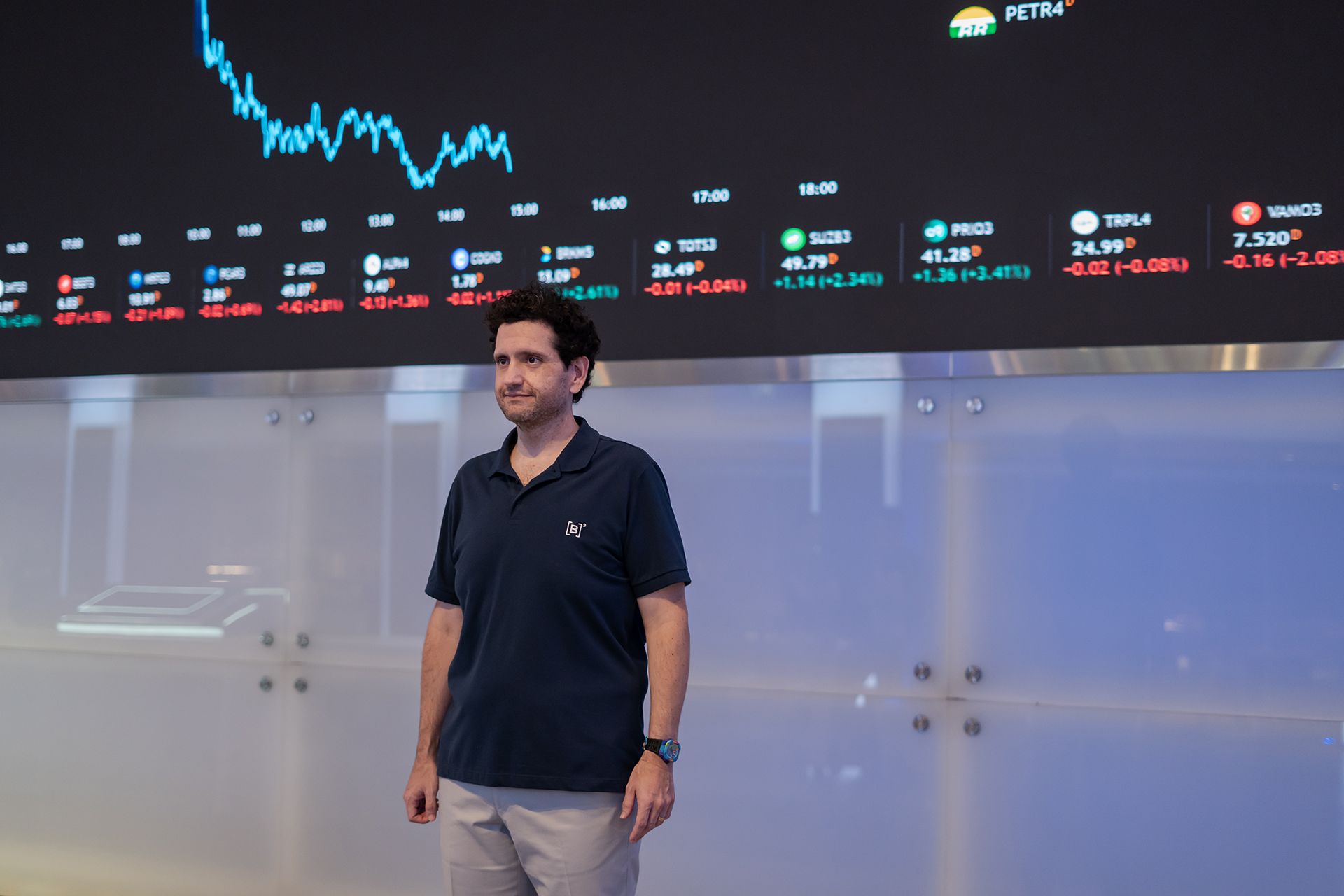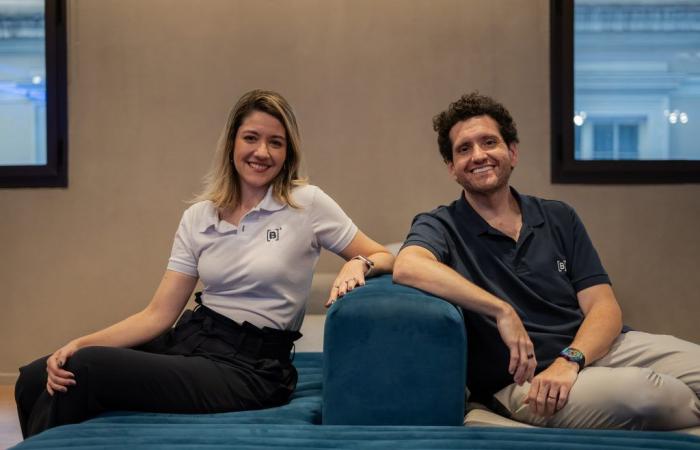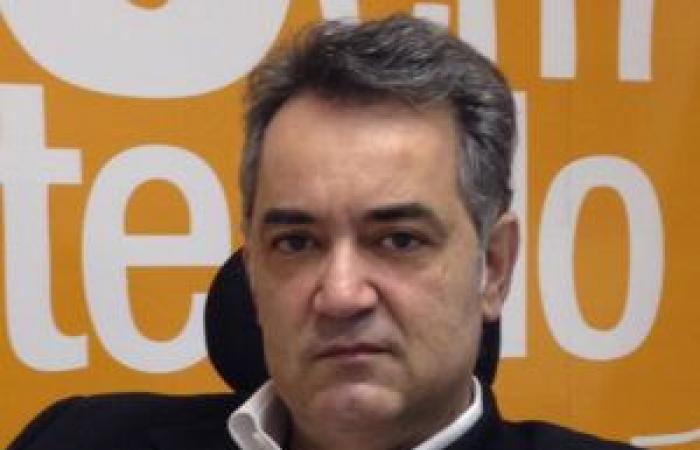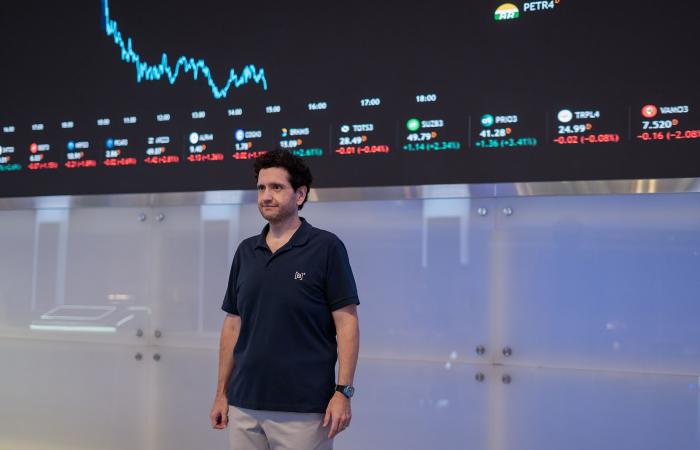By: Catherine Bolgar.
Brazilians have launched into investment.
A new wave of individual investors has emerged in the heart of Brazil’s bustling markets, ready to navigate the complex world of finance. The number has skyrocketed to around five million today from about 600,000 in 2017, according to Brazil’s stock exchange, B3 (for Brasil, Bolsa, Balcão). And those between 25 and 39 years old, generally millennials, represent almost half of them.
To help these novice investors, whose balances are mostly too small for professional financial advisors, B3 decided to complement its free online investing education with a conversational AI assistant, also free.
B3 Co-Pilot does not give stock advice, investment advice or broker recommendations. Instead, it is a quick and direct way to decipher financial terminology that may sound like a foreign language and offer answers that have been curated by B3 experts. It can explain stocks, bonds and how to find a broker, as well as more complex financial instruments.
“There is a lot of information on the Internet, but it is difficult to find the right content,” says Christianne Bariquelli, superintendent of education at B3, who speaks of the assistant as a bridge between knowledge and action. «This solution is for Brazilians who already invest but are at the beginning of their journey or for people who want to invest but lack the information they need. Some investors need reliable sources of information to confirm the offers they receive from financiers or the Internet. “We want our AI assistant to provide them with secure information from the source.”
Bariquelli attributes the newfound interest in investing to a trifecta of factors. «Financial education is more in the mainstream. Technology has improved: it is much easier to open a digital brokerage account and people can do it themselves. And between 2018 and 2021, interest rates fell to levels that people never experienced in Brazil », he says.
The average amount invested has dropped to 2,200 reais at the end of 2023 from 4,300 reais in 2021, which B3 sees as a sign of the democratization of the stock market in recent years, because it means that the investment has begun to be adopted for the middle class, not just for the rich.
Deposit savings accounts, called Poupanças, have looked attractive because Brazil’s interest rates were in the double digits, in an effort to control inflation. The number of investors is a drop in the ocean compared to the 20 million Brazilians who have savings accounts. Now, inflation has begun to decline and interest rates are falling in Brazil, and Brazilians are looking for alternatives with higher yields.
“In Brazil, almost no one invests,” says Marcos Garavini Siffert, an engineer from Bauru who coordinates an investment club with some university friends. «In the near past, it was easy to get money without doing anything, because the real interest rate [la tasa después de deducir la inflación] She was tall. That is no longer the reality. Now, the Poupanças They pay one of the lowest, if not negative, returns when compared to inflation. But it is easy to invest in one Poupança and people will die almost illiterate about investments instead of trying to capture positive returns.”
While Siffert has studied investing principles for years, he says B3’s AI assistant “can tap into people from a starting point to make them feel confident enough to organize their thought process, to feel safe to leave from Poupanças and enter this new world.
The quality of the information is also high, despite being free, Siffert points out. She discovered reports, which he receives from his private bank, in the AI assistant. “A guy who has almost nothing can access a report in a sophisticated way that he never would have had before.”
B3’s free educational offering includes articles, videos and online courses. The advantage of AI assistant is that people can ask questions and get answers instantly. Questions may include “what are stocks?” or “how can I save to invest?” or “what are ETFs?” The AI tool generates simple multi-sentence responses. To delve deeper into a topic, investors may prefer to read one of B3’s articles or take one of their courses. But if, while doing so, they come across a term they don’t understand, the AI tool can explain it instantly.
The AI assistant was first trained with B3’s own educational materials and news content, then B3 partnered with Comissão de Valores Mobiliários, Brazil’s securities market regulator, which also has a wealth of content. B3 was expanded to include information from partners such as bankers, brokers and selected influencers, with everything reviewed and approved by B3 specialists.
B3 does not track AI assistant users, but analyzes responses to ensure they remain appropriate and within B3’s boundaries.
“The team retrains the solution every day to improve responses and make any corrections,” says Marcos Albino Rodrigues, director of architecture, data and technological innovation at B3. “We put a layer of ethics in place to make sure you don’t act in a discriminatory way and make investment suggestions. “He is trained to be a financial educator.”

As soon as generative AI appeared on the market, B3 understood that it could be useful as an educational tool. “Sometimes people don’t watch the whole video or don’t get to the end of the article,” says Bariquelli. “The AI assistant is easier to use and more specific to what you are looking for.”
B3 CTO Ricardo Nardoni had a vision that B3 should increase its messaging around investing and leveraged B3’s relationship with Microsoft to develop the AI assistant.
The AI assistant runs on the Microsoft Azure OpenAI service with Azure AI Search for all documents. It is much more advanced than classic chatbots, which only have one way to answer any question and do not explain the complex acronyms and names that make financial markets seem so daunting. Generative AI enables more natural conversation, which can adapt to the user’s educational level, and can spell and explain unfamiliar terms when necessary.
Launched in February, the AI assistant already helps 10,000 users a day, with “super positive comments from users, especially on social networks,” says Rodríguez. B3 pays attention to its social media mentions because it does not collect information from users on its website.
B3 is looking for new ways to spread the use of its AI investment assistant, such as providing a widget for others, such as banks or brokerages, to put on their own websites, because users would see B3 examining the answers .
Getting Brazilians to invest in stocks and bonds is important not only for B3 but for the future of the Brazilian economy. “As capital markets in Brazil strengthen, companies that are growing can turn to the stock market to access capital,” says Bariquelli.
A World Bank report notes that while banks are essential for economic growth, supporting businesses and reducing poverty, capital markets, in the form of debt (bonds) and equity (stocks), are especially important in helping new businesses grow, which can help drive greater productivity and create new jobs. Governments also rely on capital markets when they issue Treasury bonds to pay for such large expenditures as infrastructure construction. B3 would like to see more investors buying Brazilian Treasury bonds, a low-risk investment with better returns than Poupanças, says Bariquelli.
“We believe that financial education and new investors are directly related to the improvement of the Brazilian economy,” he says, “because when you have access to capital, companies can grow, they can bring in new employers and people can have savings.” ».








